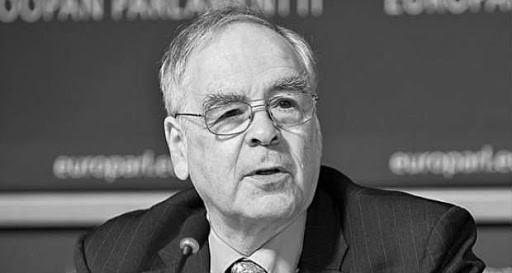Research & Studies


That is how your life started: from school to school, on the path Budapest–Stockholm–London–Glasgow, then, after the university, the famous College of Europe in Bruges.
This was certainly a well-considered choice of career: you set forth to discover Europe’s labyrinth. Although you rather identified yourself with Scotland’s egalitarian culture, you became first a researcher at Chatham House in London, then a reporter for the BBC. Followed by the London School of Economics and the University College London.
We met accidently at Hamstead in 1981, when Mátyás Sárközi introduced us. At that time your name was already known in Hungary, thanks to the ‘Hungarian Booklets’ published in Paris (Párizsi Magyar Füzetek) and the East European Reporter, a journal of democratic dissident movements. We were immediately connected by our fields of interest: Central Europe, Poland’s Solidarity, Czechoslovakia’s Charter 77, nation and democracy, nationalism and identity, the role of culture in great social transformations…
Later, when you could already visit Budapest regularly, we did not have to agree on a suitable date: you just walked through the door of the Hungarian Academy’s Institute of Sociology, and we could instantly pick up where we left off…
In the 1990s, working with Elemér Hankiss and Jody Jensen we succeeded in opening the Europe House in Kőszeg and launched the International Summer University – efforts which quickly gained your personal support. This had brought forth dozens of lectures, conferences, and seminars: ‘Exploring Central Europe’, ‘Hannibal ante portas’, ‘Possible and Impossible Futures for Europe’, ‘The European Dream and Divided Societies’, ‘The Global Shift and the Return of Central Europe’. During last year’s Winter School, you preferred personal presence to the online world created by the pandemic. There we raised essential questions as the titles of symposia: ‘Whom or what can we trust? How to be a citizen?’ We had an opportunity to discuss these pressing issues at iASK, the novel ‘institute of advanced studies’ founded in 2015 – this, again, happened with your strong support. Then you served until recently as president of the Advisory Board.
Journalism and essay writing were supplemented with political science, and there emerged the politician. For years, both of us had been teaching at the Forli Campus, the University of Bologna (naturally, seminars in Central European Studies). Once you asked me to hold your next-day classes because you had to go back to Brussels by plane. I asked you about your choice to become a Member of the European Parliament, you briefly replied: ‘It was time to change. I began to fail to fully understand what I was writing about.’
Over the years at the European Parliament, you did not stop to create excellent books, and your interviews turned into great essays. The subtle irony, mixed with a certain self-irony and elegant but never offending reserve characterized you in every genre. Ceaseless inquiry into minute details helped you avoid the traps of hasty generalizations. Meanwhile, your personal re-discovery of Central Europe did not come to an end either. The focus on Kőszeg was extended to the whole of Vas County, you represented both in the European Parliament, providing funds from your own budget for the Kőszeg Civic Casino, originally founded at Count Stephen Széchenyi’s initiative.
Your partner for life, Piret, also assisted you in reaching the next port, Tallinn, where you helped expand the university’s international relations, organized the summer university (and, of course, published in local newspapers about Hungarian and European politics). But first of all, you found a home, a new homeland, which was chosen by yourself and embraced you. And again, as with all places throughout your journey, you began to explore the lands, people, local culture, Estonian literature, thinking, and cuisine… all in all, you possessed the unique ability to identify with multiple cultures at the same time.
They connect us with a distinct, complex compound of values, traditions, and beliefs, which is usually consolidated by independent linguistic expression. However, this identification is to be contested: one can choose or spontaneously adopt certain values but cannot deny those of others. You warned us that it is impossible to win culture wars – as they cannot be ended either in the absence of reasonable dialogue. Such wars create almost unbridgeable rifts or, in a worse case, bloody wars, if not civil wars. Thus, they generate games ending in a lose-lose situation.
Apparently, you were rather lonely with this understanding of public life and politics since the loud noises of the unrelenting battle stifled the voices of agreement. The belief that politics can be effective only through inculcating a strong and clear image of the enemy seemed to triumph.
To gain ground, the culture of cooperation demands, in addition to goodwill, historical and linguistic, that is, cultural knowledge as well as empathy. This includes respect for diversity and the ability to understand and accept contradictions.
Because the man we know as György Schöpflin was in fact the new Odysseus of Central Europe.
Dear Gyuri, thank you for letting us accompany you on a part of your voyage. Without you, we would know less about the world and our place therein.
And the journey does not end here…